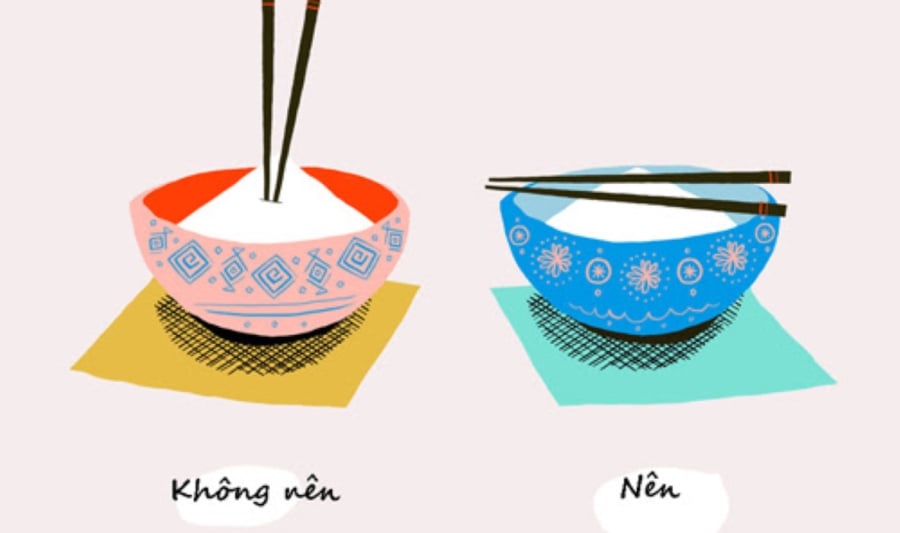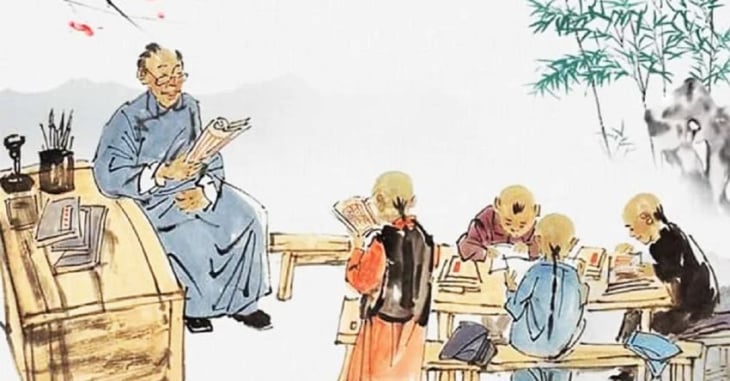The following rules, reflected in all aspects of life, may seem like constraints but actually teach us respect and manners:
1. Chopstick Etiquette
As a unique set of cutlery, the earliest origins of chopsticks can be traced back to the Shang and Zhou dynasties over 3,000 years ago. Due to their long history, there are more rules associated with using chopsticks.
Do not stand chopsticks upright in a bowl of rice
Most people are scolded by their parents as children for doing this. This is because, in ancient times, chopsticks were only stood upright in a bowl of rice during ancestor worship or when paying respects to the deceased.

Do Not Stand Chopsticks Upright
Do not tap your bowl with chopsticks
When eating, it is considered rude to tap your bowl with chopsticks. This is because, in the past, beggars would tap their bowls with chopsticks to attract the attention of those around them.
In today’s society, while there may be very few beggars, tapping your bowl with chopsticks still carries a negative connotation. Use different sets of chopsticks for different purposes.
While chopsticks come in various colors, pay attention to using red and white ones. If a funeral is held at home, white chopsticks must be used instead of red, as using red would be considered disrespectful to the deceased.
On the other hand, during happy occasions, red chopsticks are preferred as they symbolize prosperity. In this case, using white chopsticks is not necessary. Moreover, if a pair of chopsticks falls during a celebration, it is considered auspicious as the phrase “chopsticks fall” sounds similar to “good luck” in the Vietnamese language.
2. Family Etiquette
Our ancestors highly valued family etiquette because manners are a reflection of one’s education and character. A person’s behavior indicates whether they are well-mannered or not.

Ancestors Placed Great Emphasis on Family Etiquette
Do not shake your legs while sitting
As the saying goes, “A poor man shakes his legs, and an unmarried woman shakes hers.” While this may be just an expression, it highlights our ancestors’ disapproval of leg-shaking.
If you are accustomed to shaking your legs, you may be perceived as being casual and disrespectful in public places. Leg-shaking not only affects your image but also your destiny. If you shake your legs while negotiating with a partner, they may form a negative impression of you.
Respect the elderly and love children
There is an order to things, and a distinction between seniors and juniors. Respecting the elderly and loving children is a traditional virtue that the younger generation should uphold. They must learn to show reverence to their elders.
When facing elders, do not point with your fingers, especially your little finger, as it signifies contempt. Juniors should also not call elders by their names, as it is considered impolite.
During mealtimes, wait for the elders to be seated and start eating before you do. When the meal is over, the host should wait for the guests to put down their bowls first before clearing the table. It is not appropriate to start clearing while guests are still eating.
When there are guests in the house, do not sweep the floor. Doing so is considered rude and may evoke negative feelings. Also, do not hit anyone with a broom as it shows a lack of respect.






























